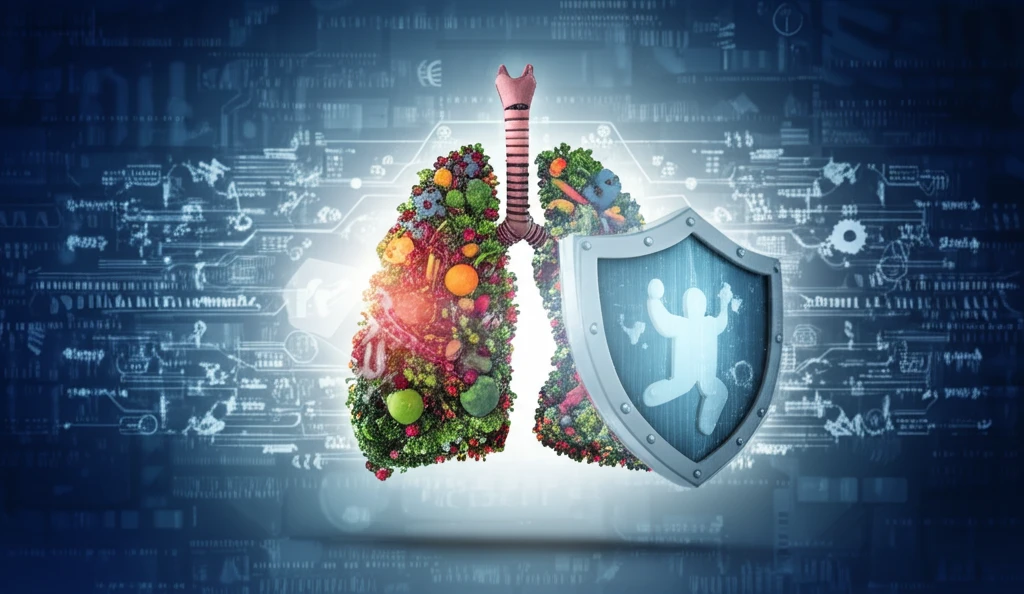
Unraveling Chest Infections: A Comprehensive Guide to Understanding, Diagnosing, and Treating Lung Ailments
"Navigate the complexities of chest infections with our in-depth analysis, crafted for accessible understanding and proactive health management."
Chest infections are a widespread health concern, affecting individuals of all ages and backgrounds. These infections, which primarily target the respiratory system, can range from mild inconveniences like the common cold to severe, life-threatening conditions such as pneumonia or bronchitis. Understanding the nature of these infections, their causes, and the available treatments is crucial for maintaining optimal respiratory health.
The lungs, being constantly exposed to the external environment, are particularly vulnerable to infections caused by viruses, bacteria, and fungi. These pathogens can enter the respiratory system through various routes, including inhalation of contaminated air droplets, direct contact with infected surfaces, or even spread from other parts of the body. Once inside, they can trigger inflammation, mucus production, and tissue damage, leading to a variety of symptoms that can significantly impact a person's quality of life.
This article serves as a comprehensive guide to chest infections, providing accessible information on their diagnosis, treatment, and prevention. We will explore common types of chest infections, delve into their causes and risk factors, discuss the importance of early detection, and outline the latest advancements in medical treatments. Whether you're a healthcare professional, a patient seeking answers, or simply someone interested in learning more about respiratory health, this article aims to empower you with the knowledge you need to protect your lungs and breathe easy.
Decoding Chest Infections: Types, Symptoms, and Diagnostic Approaches

Chest infections manifest in various forms, each characterized by distinct symptoms and underlying causes. Distinguishing between these types is essential for accurate diagnosis and effective treatment. Common types of chest infections include acute bronchitis, pneumonia, influenza (flu), and less common but potentially serious infections like Actinomycosis.
- Acute Bronchitis: Primarily inflammation of the bronchial tubes, leading to cough and wheezing.
- Pneumonia: Infection of the air sacs in the lungs, causing fever, cough with phlegm, and chest pain.
- Influenza (Flu): Viral infection affecting the respiratory system, with fever, cough, sore throat, and fatigue.
- Actinomycosis: Rare bacterial infection that can mimic lung cancer, requiring specific diagnostic and treatment approaches.
Prevention and Management: Safeguarding Your Respiratory Health
Preventing chest infections involves adopting a range of proactive measures to minimize exposure to infectious agents and strengthen the respiratory system's natural defenses. Key preventive strategies include practicing good hygiene, such as frequent handwashing and covering coughs and sneezes; avoiding close contact with individuals who are sick; staying up to date on vaccinations, including the annual flu vaccine and pneumococcal vaccine; maintaining a healthy lifestyle, including regular exercise, a balanced diet, and adequate sleep; and avoiding smoking and exposure to secondhand smoke. Effective management of existing chest infections involves prompt medical attention, adherence to prescribed treatments, and supportive care measures to alleviate symptoms and promote recovery. Treatments may include antibiotics for bacterial infections, antiviral medications for viral infections, and supportive therapies such as rest, hydration, and pain relief.
